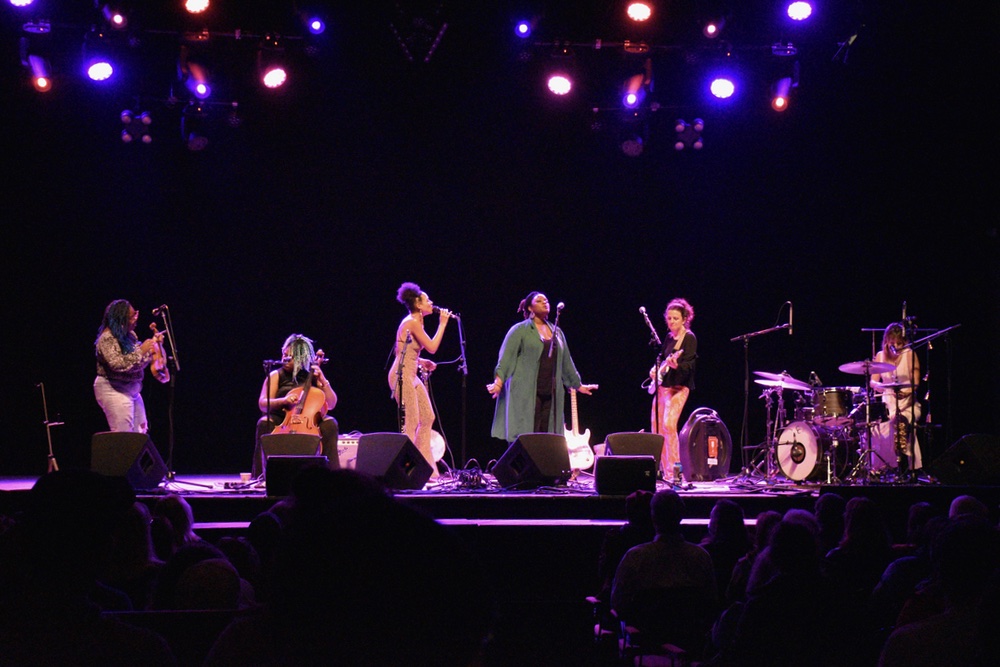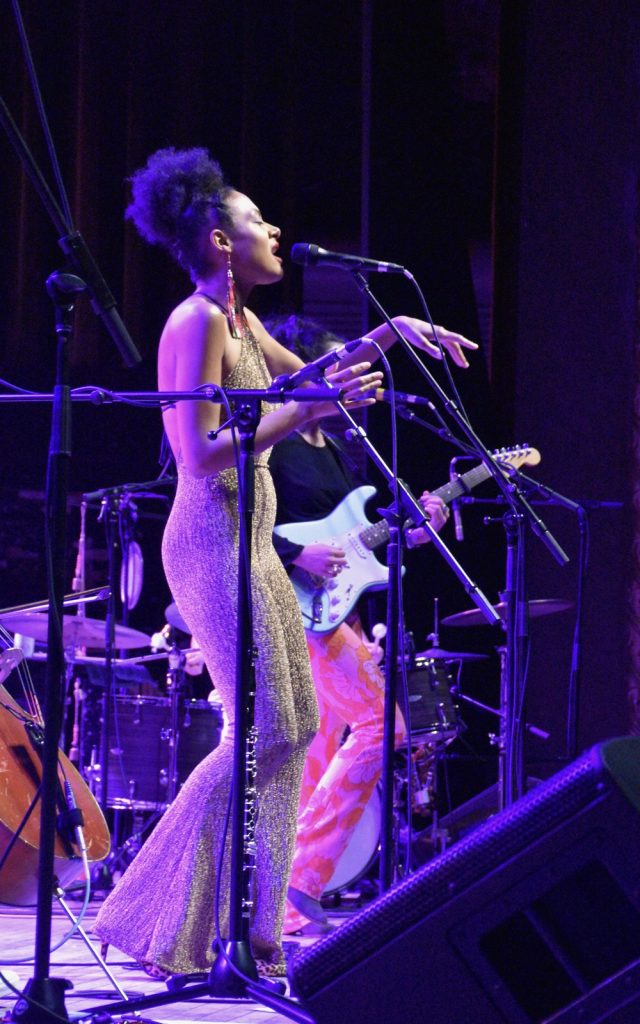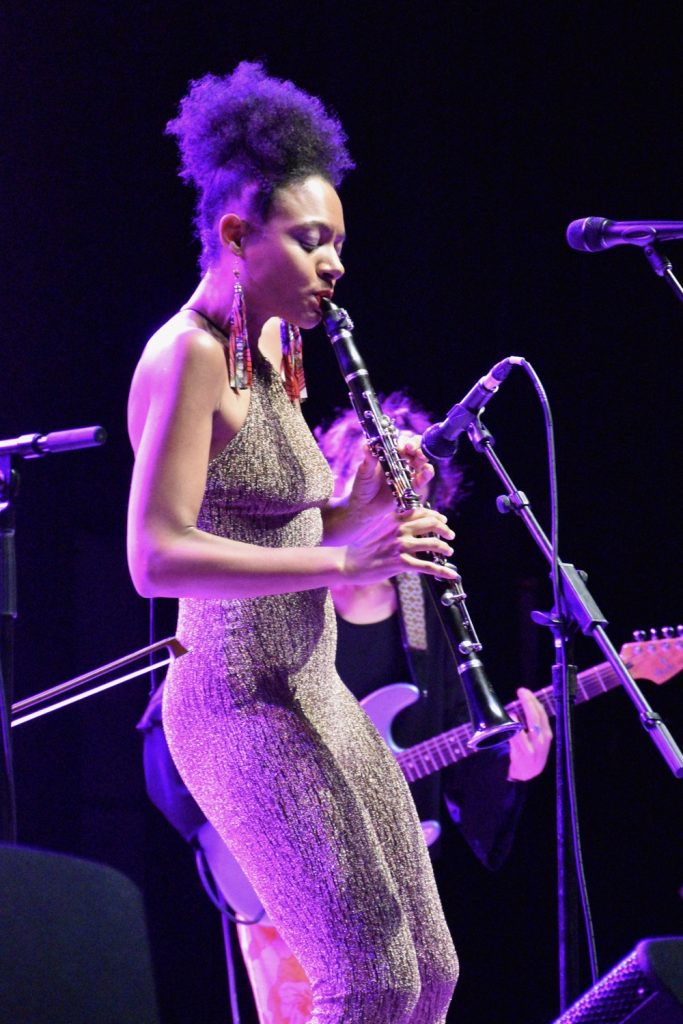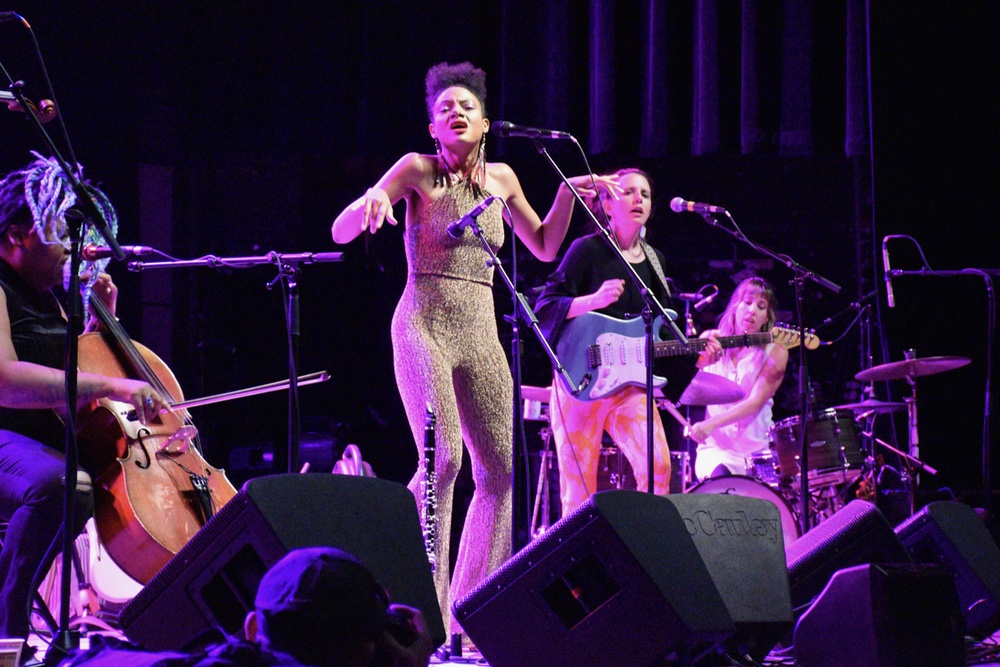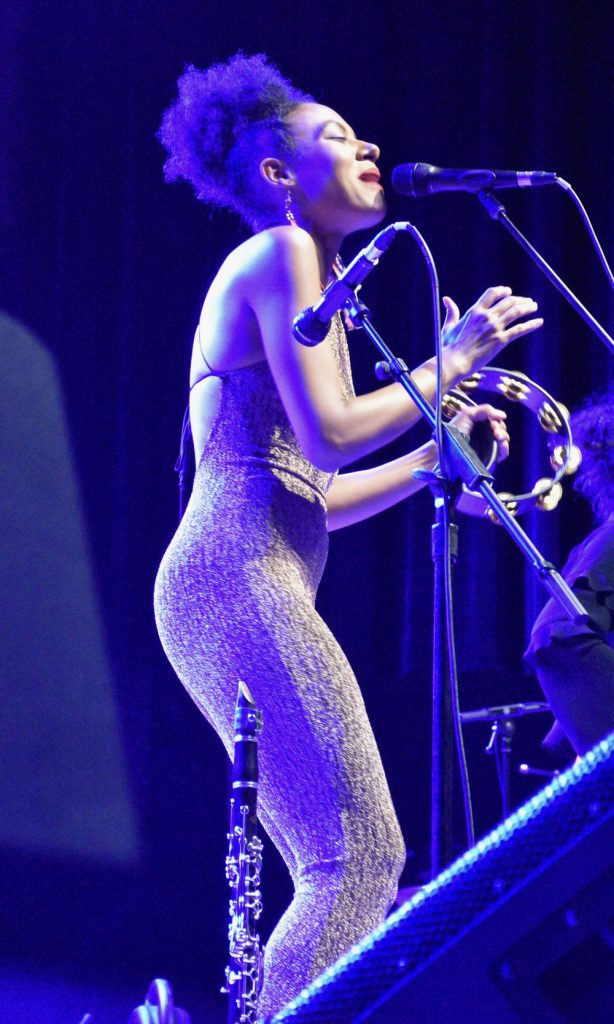Allison Russell Is Shamanic in Portland, Maine
Allison Russell With Opener Kyshona, State Theater, Portland, Maine, March 9, 2022
By Dale Henry Geist
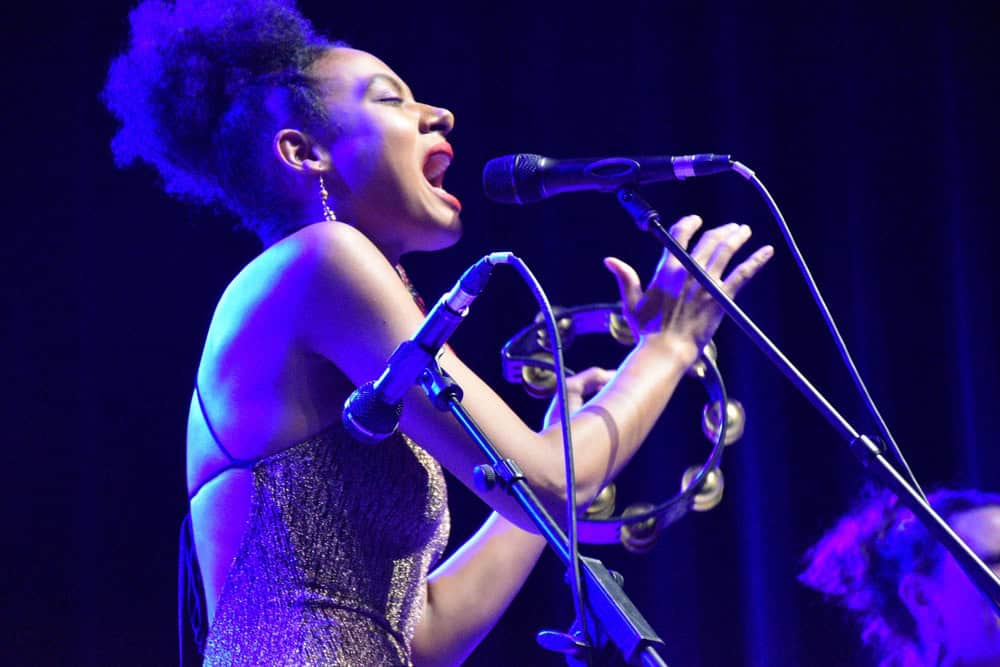
I needed that.
I came into the show off a rough stretch; worried about global tragedies that I felt powerless against and about problems closer to home. I needed something to connect me to eternal truths.
I found it in the music and the magic of Allison Russell.
“I’m a confused, hopeful agnostic,” Russell said from the stage. Perhaps. But in concert, she is shamanic, setting a hypnotic atmosphere that gently disarms, gradually lowering you into the depths, holding your hand as she asks you to face the fear, face the pain, face your own capacity for cruelty, to look it all in the eyes…and embrace it.
And then, to rise. To emerge into the light. To look around, to connect. To celebrate all the joyful motherfuckers, and to join them in the dance.
“You are more than the sum of your scars,” she repeats.
“Empathy will save us,” she repeats.
“It gets better,” she repeats.
These are easy things to say. But coming from Russell, whose miraculous rise from a grim childhood was well understood by the audience, those words strike deep.
Russell is not an imposing figure. Slight, bird-like, occasionally giggly: she disarms. Then hypnotizes. Many of the songs she played – nearly all of them from her Grammy-nominated 2021 stunner Outside Child – contained elements of chant. The compositions are accessible – lilting melodies, satisfying harmonic progressions, accessible if emotionally difficult lyrics – but the musical settings are just exotic enough to open a crack in pat expectations of what a folk song will be. Violin; cello; a drum kit, often played with mallets, accenting an innate groove rather than driving it; a richly-distorted electric guitar, and Russell’s own occasional clarinet solo and banjo accompaniment – the sound serves to open your mind to possibilities.
Frequent verses in French serve the same end: to pry a space in your expectations where possibilities can arise.
Most songs began with the band vamping, often arhythmically, under Russell’s spoken scene-setting. The themes she kept returning to were simple: there is hope for us all, no matter what we’ve been through; we all come from a lineage of survivors; empathy will save us; art helps grow empathy. Simple, yes, and because of their simplicity, the repetition, and the hypnotic atmosphere she created: powerful.
And there was another theme, one that seems to have come especially to the fore for Russell in recent weeks: the power of women. Early on, she called attention to the “circle of goddesses” surrounding her onstage (Shanti and Monique Ross, collectively known as Sista Strings; guitarist Mandy Fer, and drummer Beth Goodfellow), saying “no one remarks when there’s a stage full of men; we’re gonna do this until it’s unremarkable.” She alluded to her recent, jubilant experience playing at Brandi Carlile’s Girls Just Wanna Weekend, a festival of, by, and for women. She mentioned her show a few days ago opening for Yola at Nashville’s storied Ryman Auditorium, featuring a 7-piece all-women band and a special appearance by rapper Daisha McBride. She talked about the long-delayed nomination of her “chosen sisters” for Grammys in categories like folk, Americana, and country (Yola, Mickey Guyton, Carlile, Rhiannon Giddens, Valerie June.)
Then Russell introduced “All of the Women”, a street-level view of the often unseen violence against women, children, non-binary and trans people. It was, in a word, wrenching.
Later, she took a moment to acknowledge her sisters in Our Native Daughters, the group of Black women she formed in 2019 with Giddens, Amethyst Kiah, and Leyla McCalla, who encouraged her to step out and do a solo project (which ultimately became Outside Child.) This served as an introduction to “You’re Not Alone,” a Cajun-flavored song of reassurance she wrote for her daughter and recorded with Our Native Daughters.
The venue was Portland, Maine’s State Theater, a gorgeous 1920s-vintage movie palace. Russell complimented its acoustics – not for her band, but for the way we, the audience, sounded when we cheered. She mentioned her frequent trips to this town – it’s her third show here in half a year. She did not mention the size of the audience: the cavernous theater wasn’t much more than half full. This didn’t seem to dim Russell’s commitment one iota.
Other personal highlights included “Persephone”, a beautifully-wrought ode to the healing power of unconditional love when first encountered; “Quasheba, Quasheba” a tribute to her ancestor, kidnapped and sold into slavery, yet still with us through the power of oral history and art; the emblematic “Fourth Day Prayer;” and “Joyful Motherfuckers,” which has always spoken deeply to me.
The show’s opener was Kyshona, solo and acoustic, delivering her songs of empathy in a remarkably flexible, powerful voice and a guitar attack that ranged from subtle to near-metal. Russell invited Kyshona out to close the show with the hit “Nightflyer” and a reprise of “Fourth Day Prayer”. She encored with Sade’s “By Your Side” and the slinky groove of Tracy Chapman’s “Talkin’ Bout a Revolution,” delivered in a robust alto, that had the audience on their feet, dancing.
I walked out into a night made sparkling clean by newfallen snow.
I needed that.
In the words of Russel’s “Poison Arrow”: “All you sad and broken travelers, come on.”
